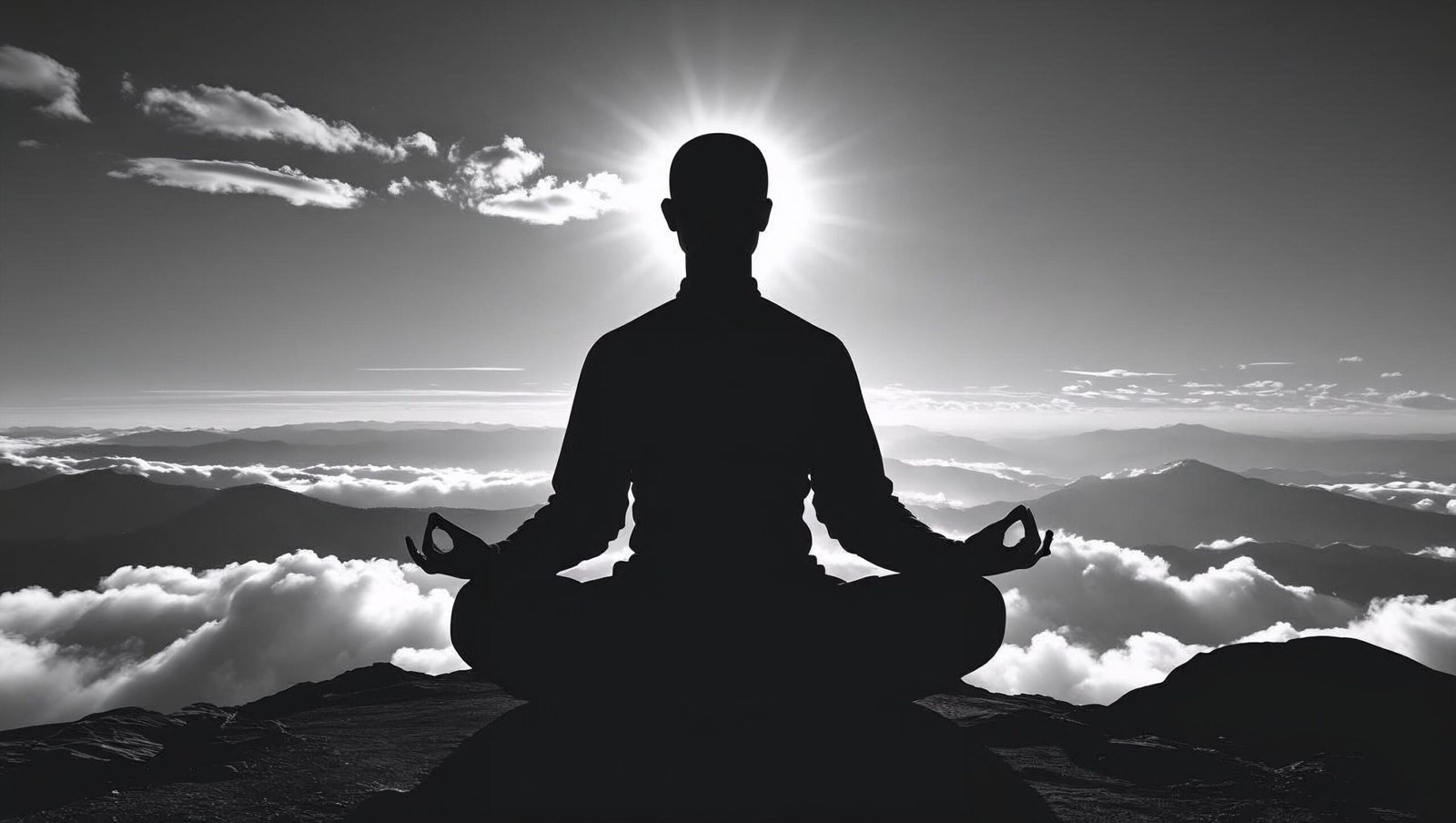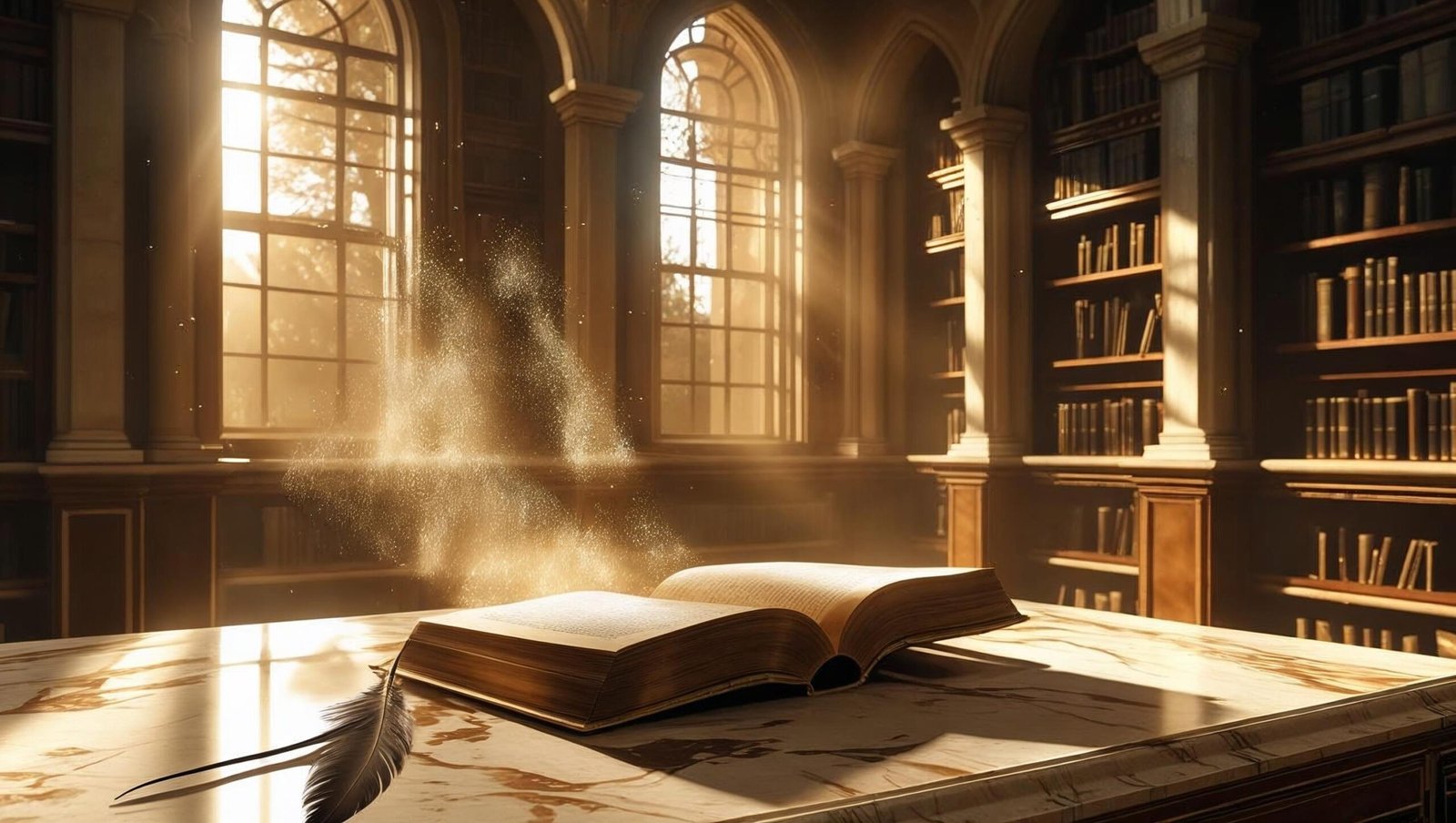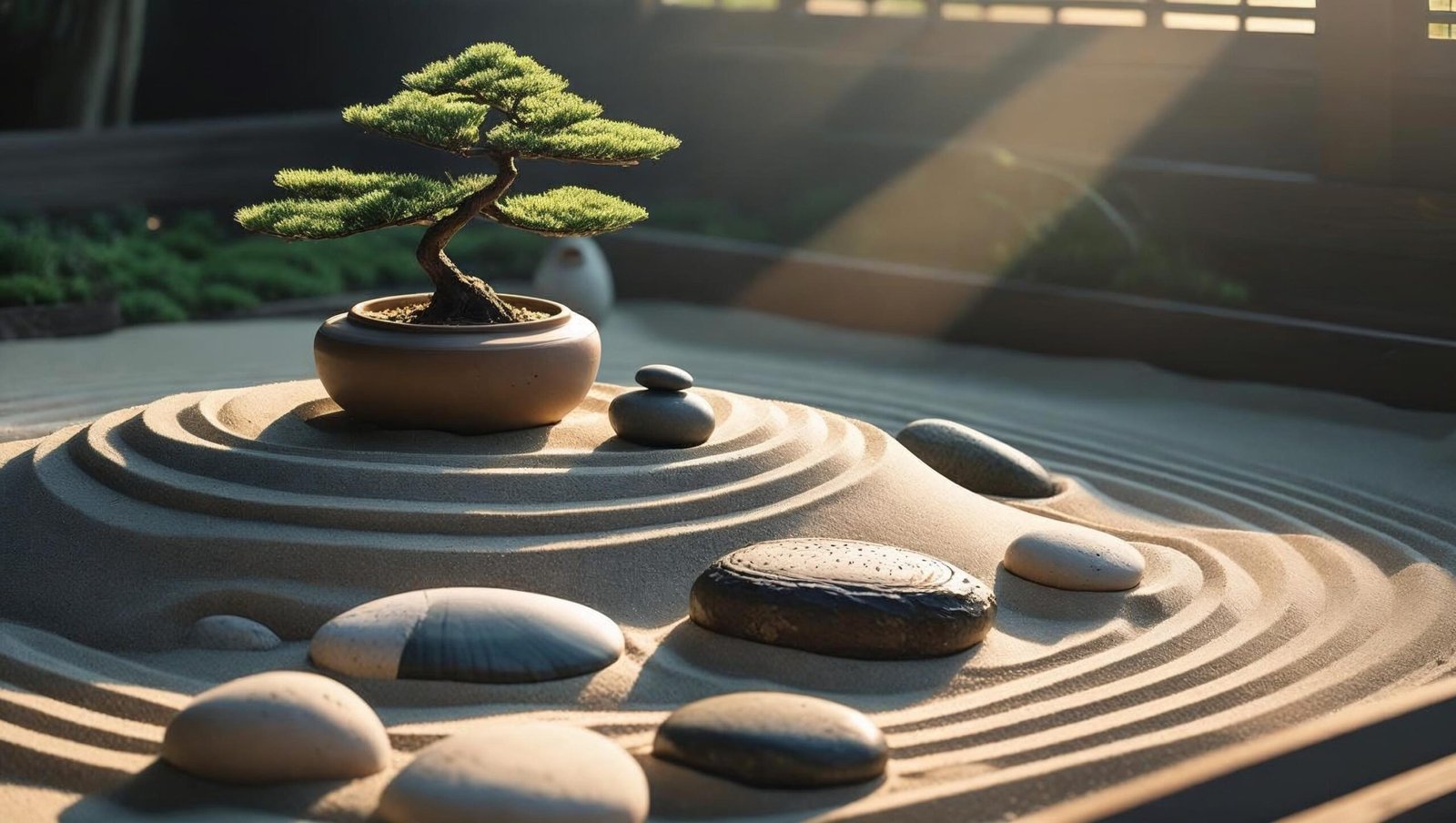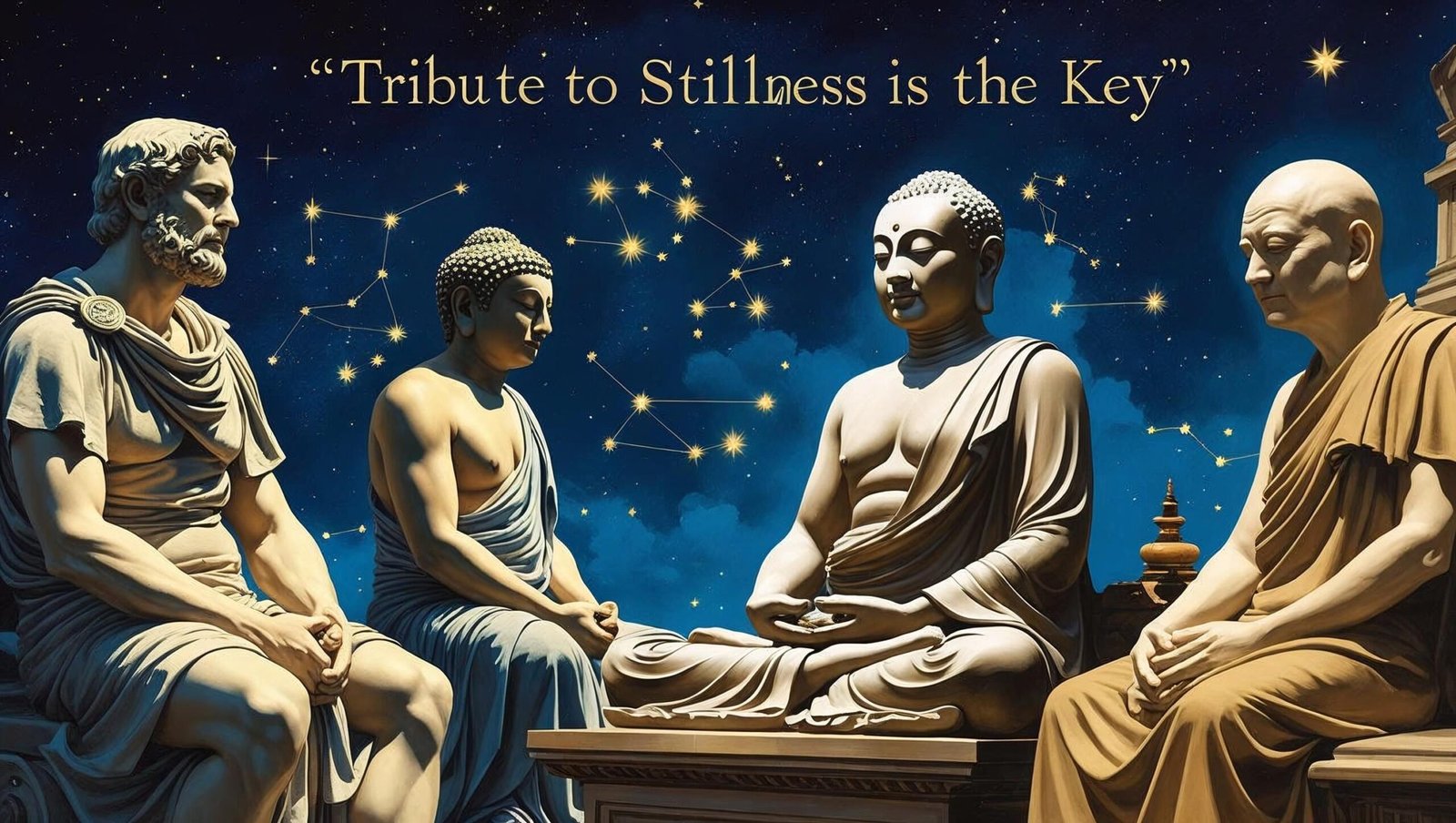Introduction
In an era inundated by digital distractions, hyper-productivity, and relentless noise, the ancient art of stillness is not just a luxury—it is a necessity. Stillness is the Key by Ryan Holiday emerges as a luminous guidebook for those yearning to reclaim their inner peace and clarity. This compelling work fuses timeless wisdom from Stoicism, Eastern philosophy, and modern psychology into actionable insights.
Through his signature narrative style, Holiday elucidates how Stillness is the Key by Ryan Holiday is not about inaction, but intentional calmness amidst chaos. This blog post distills the essence of this powerful book into seven transformative lessons, each providing a lens through which readers can better understand themselves, their goals, and the path to a meaningful life.

1. The Mind Needs Stillness to See Clearly
The first core idea in Stillness is the Key by Ryan Holiday is that mental clutter leads to poor decision-making. Drawing upon figures like John F. Kennedy and Marcus Aurelius, Holiday emphasizes how leaders achieved greatness through inner calm and mental discipline. In a world that values speed, clarity often comes from slowing down. Stillness allows the fog of urgency to lift.
Without mental stillness, we misinterpret, react impulsively, and spiral into anxiety. Stillness is the Key by Ryan Holiday teaches us that when the mind is clear, insight naturally emerges. It is in these silent intervals that genius reveals itself.
2. Discipline Your Emotions or Be Ruled by Them
Holiday’s second lesson revolves around emotional mastery. In Stillness is the Key by Ryan Holiday, the author reminds us that external peace is impossible without internal composure. Emotional stillness is not suppression; it is control.
Using the example of General Ulysses S. Grant’s cool temperament during crises, Holiday illustrates how leaders who remain unshaken in adversity inspire trust and execute with precision. In our own lives, if we can resist emotional overreactions, we gain the clarity needed to respond, not just react.
3. The Body Reflects the Mind: Guard It Well
Stillness is the Key by Ryan Holiday draws strong connections between physical health and spiritual well-being. If the body is neglected, the mind cannot perform at its best. Holiday recounts how Churchill used painting, walking, and bricklaying to nourish his mental focus.
This principle is timeless. Even in ancient Rome, thinkers like Seneca preached moderation and bodily care. The takeaway? Our physical routines are sacred. Rest, exercise, and simplicity are not indulgences—they are essential tools for a still life.
4. Reject Busyness, Embrace Deep Work
Busyness has become a badge of honour in modern society, but Stillness is the Key by Ryan Holiday dismantles this illusion. Being perpetually occupied does not equate to productivity. In fact, it is often a mask for aimlessness.
Holiday references thinkers like Cal Newport, aligning with the concept of “Deep Work”—focused, undistracted effort that results in meaningful output. Stillness creates the space for such depth. Without it, we remain trapped in the shallows of scattered attention.
5. Journal, Reflect, Repeat
One of the most pragmatic insights from Stillness is the Key by Ryan Holiday is the value of daily journaling. Holiday himself is a staunch advocate of self-reflection, and he shares how icons like Anne Frank and Leonardo da Vinci used journals not just to document events, but to think clearly.
The act of journaling forces introspection. It makes you your own therapist, your own mentor. It is in these quiet conversations with oneself that emotional knots unravel and priorities realign. Journaling is a daily practice of stillness, available to anyone.

6. Choose Virtue Over Validation
Social media, instant gratification, and vanity metrics dominate our cultural landscape. Stillness is the Key by Ryan Holiday provides a counterpoint: the pursuit of virtue. Holiday urges readers to live a principled life not because it looks good, but because it is good.
Citing Stoics like Epictetus and spiritual leaders like the Buddha, Holiday reminds us that peace comes not from applause but from alignment with core values. When you are rooted in virtue, the storms of criticism and comparison cannot shake you.
7. Stillness as the Gateway to Spiritual Fulfillment
In its final chapters, Stillness is the Key by Ryan Holiday elevates the discussion to a spiritual plane. True stillness is not just a tactical advantage—it is a path to transcendence. Holiday quotes thinkers from Christianity, Buddhism, and Taoism, all converging on one truth: the soul needs silence.
Whether through meditation, solitude, prayer, or nature walks, accessing spiritual stillness connects us to something greater than ourselves. It’s where ego dissolves, and humility thrives. This stillness offers not just peace—but purpose.
Expanding the Silence: A Deeper Dive into the Core Tenets of Stillness
One might assume that Stillness is the Key by Ryan Holiday offers a passive philosophy. However, the deeper you journey into its pages, the more you recognize that stillness is not inertia—it is directed presence. It is the conscious refusal to be enslaved by reactivity. As you continue absorbing Holiday’s insights, a second reading may even feel like encountering an entirely new work. Let’s dive deeper into the enduring truths beneath the surface of this timeless guide.
The Art of Saying No: Stillness Begins with Boundaries
In modernity, our calendars are filled with obligations that rarely serve our soul. Holiday reveals that behind every “yes” lies a hidden cost—often paid in peace, attention, or presence. One profound yet practical teaching from Stillness is the Key by Ryan Holiday is learning the courage to say no.
He makes a compelling case for radical prioritization. By declining the trivial, we reclaim the essential. It’s not just about cutting out clutter from your schedule—it’s about cutting noise from your life. As Holiday notes, many of history’s most accomplished minds were ruthless with their time because they valued stillness more than applause.
By choosing less, you actually achieve more—but with focus, integrity, and serenity.
Nature as a Mirror: Where the Soul Breathes Freely
Modern environments are engineered to distract. Billboards, push notifications, and algorithmic content compete for your attention. One of the most poetic sections in Stillness is the Key by Ryan Holiday invites readers to return to nature—not as escapism, but as a reconnection to reality.
Nature does not rush, yet everything gets accomplished. This organic stillness reminds us that clarity doesn’t emerge from chaos. When we immerse ourselves in nature—be it a quiet forest, a riverbank, or a night sky—we shed ego, reconnect with humility, and rediscover awe.
Holiday highlights the example of Theodore Roosevelt, who often retreated to natural landscapes for restoration. For readers today, even five minutes outdoors, without a device, can begin to recalibrate their internal compass.

From Noise to Nuance: Reclaiming the Depth of Thought
In a world obsessed with speed and surface-level content, deep thinking has become endangered. Holiday, in Stillness is the Key by Ryan Holiday, gently yet firmly critiques our shrinking attention spans. He mourns the loss of contemplation—an essential skill for solving complex problems and fostering creativity.
He shares how thinkers like Isaac Newton and Einstein made their greatest discoveries in moments of solitude, away from the rush of daily life. Without constant stimulation, the brain doesn’t become bored—it becomes brilliant. Ideas need stillness to gestate.
The book subtly encourages readers to resist the shallow scrolling and instead dive into deep waters—books, long walks, meditative reflection, slow conversations. This isn’t just intellectual hygiene—it’s spiritual oxygen.
The Hidden Weight of Restlessness
Many readers come to Stillness is the Key by Ryan Holiday believing they suffer from overwork or burnout. But Holiday clarifies that the deeper illness is not busyness, but restlessness.
This inner agitation—the itch to always do something, check something, escape something—exacts a heavy toll. It erodes relationships, diminishes joy, and dulls our sense of purpose. Holiday contends that to truly heal, we must address this compulsive motion.
He quotes spiritual leaders and athletes alike who emphasize the power of stillness not as avoidance, but as repair. It’s in silence that emotional wounds are stitched. It’s in solitude that you remember who you are when nobody’s watching.
Reinforcing the Role of Ritual
A recurring motif in Stillness is the Key by Ryan Holiday is the immense power of daily rituals. Far from being monotonous, rituals anchor us to intentional living. Whether it’s journaling at sunrise, walking without devices, or meditating before sleep—these simple acts create rhythm in the chaos.
Holiday references figures like Fred Rogers and Marcus Aurelius who built routines that shielded their inner world from the unpredictability of the external one. Rituals serve as scaffolding for stillness. They are reminders that the sacred can be accessed in the ordinary.
He argues that in a distracted world, rituals aren’t outdated—they’re revolutionary. They allow us to carve out silence amidst sound, slowness amidst speed, and presence amidst pressure.
Redefining Productivity Through Stillness
Conventional productivity champions multitasking, urgency, and the illusion of perpetual motion. Stillness is the Key by Ryan Holiday dismantles these myths with compelling clarity. He urges readers to define productivity not by quantity but quality—and not by pace but purpose.
Stillness, he asserts, is not the antithesis of achievement. It is its precursor. You don’t write a brilliant novel in the midst of chaos. You don’t innovate through anxiety. You create through clarity—and that clarity begins in stillness.
He shares how Silicon Valley leaders, Navy SEALs, and world-class creatives all use intentional pauses as fuel. Rest, silence, and withdrawal are not detours. They are integral to peak performance.
The Dangers of Ego and the Power of Humility
Another nuanced theme in Stillness is the Key by Ryan Holiday is the link between ego and chaos. Ego demands constant validation, applause, and motion. It fears silence because silence offers no audience.
Holiday, echoing ideas from his earlier work Ego is the Enemy, explains how ego destroys stillness. It provokes comparison, invites insecurity, and fosters discontent. The antidote is humility—not weakness, but truth. To admit limits. To acknowledge mystery. To be open to learning.
Stillness thrives in humility because it is rooted in reality. In the end, ego shouts; wisdom listens.

What Makes the Book So Universally Impactful
Unlike many self-help books that cater to specific demographics, Stillness is the Key by Ryan Holiday transcends boundaries. Whether you’re a college student battling distraction, a corporate executive battling stress, or a spiritual seeker longing for depth—this book speaks your language.
Holiday’s writing is dense with relevance but free of jargon. It combines psychology, spirituality, and philosophy without ever feeling forced. Perhaps its greatest triumph is its timelessness. This is not a book of trends. It’s a book of truths.
It gently reminds you that the life you’re looking for—the one of focus, clarity, fulfillment—is not out there. It’s within. And it begins with stillness.
How to Implement the Teachings in Real Life
Reading Stillness is the Key by Ryan Holiday is not enough. Transformation occurs only through action. Below are a few practical ways to embody the book’s principles:
-
Start your mornings in silence: No phone, no emails, no media—just you, your breath, and perhaps your thoughts on a page.
-
Embrace boredom: When tempted to scroll or distract, sit still instead. Observe what emerges.
-
Take digital sabbaths: One day a week, unplug fully. Let your mind reset.
-
Practice “essentialism”: Eliminate non-essential tasks. Guard your energy like a priceless resource.
-
Reflect nightly: Ask yourself—Was I still today? Or just busy?
The essence of Stillness is the Key by Ryan Holiday lies in these subtle, persistent choices. Over time, they become a new lifestyle—one governed not by chaos, but by clarity.
Final Thoughts: Peace Is a Discipline
Stillness is the Key by Ryan Holiday does not promise a dramatic overnight change. What it offers is far more valuable—a way of living that prioritizes depth over distraction, being over doing, and awareness over autopilot.
It is a reminder that in an era obsessed with hustle, the truly wise choose harmony. In a society that rewards noise, the truly strong choose quiet. And in a culture defined by doing more, the truly fulfilled seek to be more.
The path forward isn’t found in acceleration, but in intentional deceleration.
Why “Stillness is the Key by Ryan Holiday” Is So Relevant Today
The reason Stillness is the Key by Ryan Holiday resonates so widely today is that it addresses a core modern affliction—restlessness. Our world is louder, faster, and more cluttered than ever. In this context, Holiday’s insights become almost revolutionary.
This book is not merely a reflection—it is a call to action. A reminder that amidst all the noise, there lies a choice: to live reactively or to live deliberately.
Critical Appraisal of the Writing Style
One of the strengths of Stillness is the Key by Ryan Holiday is its seamless narrative flow. Holiday combines historical anecdotes with modern application in a lucid, engaging tone. He does not preach; he persuades.
His style is minimalist, echoing the very stillness he writes about. Yet every sentence carries weight. There is neither fluff nor filler. This stylistic economy mirrors the book’s thesis—cut the noise, focus on the essence.

What Makes This Book Stand Out
-
Timeless Universality:
From Confucius to Churchill, the book draws across centuries and cultures. -
Actionable Wisdom:
Stillness is the Key by Ryan Holiday is filled with tools—not just theories. -
Modern Relevance:
It speaks directly to the digital fatigue and attention crisis of our age. -
Philosophical Depth:
Though simple to read, the ideas are intellectually and spiritually profound.
Who Should Read It?
This book is for:
-
Entrepreneurs overwhelmed by constant hustle.
-
Creatives seeking focus and clarity.
-
Leaders who must make calm decisions under pressure.
-
Students navigating information overload.
-
Anyone feeling spiritually, mentally, or emotionally drained.
Frequently Asked Questions (FAQs)
Q1. Is Stillness is the Key by Ryan Holiday religious or secular?
It is largely secular but draws wisdom from various religious traditions. It’s inclusive, not dogmatic.
Q2. Can I apply the book’s principles if I have a busy life?
Absolutely. Holiday designed the practices to integrate into everyday life, even for those with packed schedules.
Q3. What’s the central message of Stillness is the Key by Ryan Holiday?
Stillness—mental, emotional, and spiritual—is essential for clarity, performance, and fulfillment in life.
Q4. Is this book similar to The Obstacle is the Way?
Yes, in tone and theme. However, Stillness is the Key by Ryan Holiday leans more toward inner mastery than external challenge.
Q5. Does the book include practical steps?
Yes. It features daily rituals, journaling tips, historical examples, and meditative practices.
Conclusion: Embrace the Stillness, Reclaim Your Power
Stillness is the Key by Ryan Holiday is more than just a book—it is a roadmap back to ourselves. In a world screaming for our attention, it teaches us to listen inward. To be still. To be present. To be powerful.
If you are exhausted by distractions, tired of running on empty, or simply seeking more intentional living, let this book be your compass. It will not only sharpen your focus but renew your spirit.
As Ryan Holiday rightly puts it, “Stillness is what aims the archer’s arrow. It inspires new ideas. It sharpens perspective. Stillness is the key.”
Visit shubhanshuinsights.com for more such profound book reviews that fuel both intellect and inner peace. Let’s read, reflect, and rise.